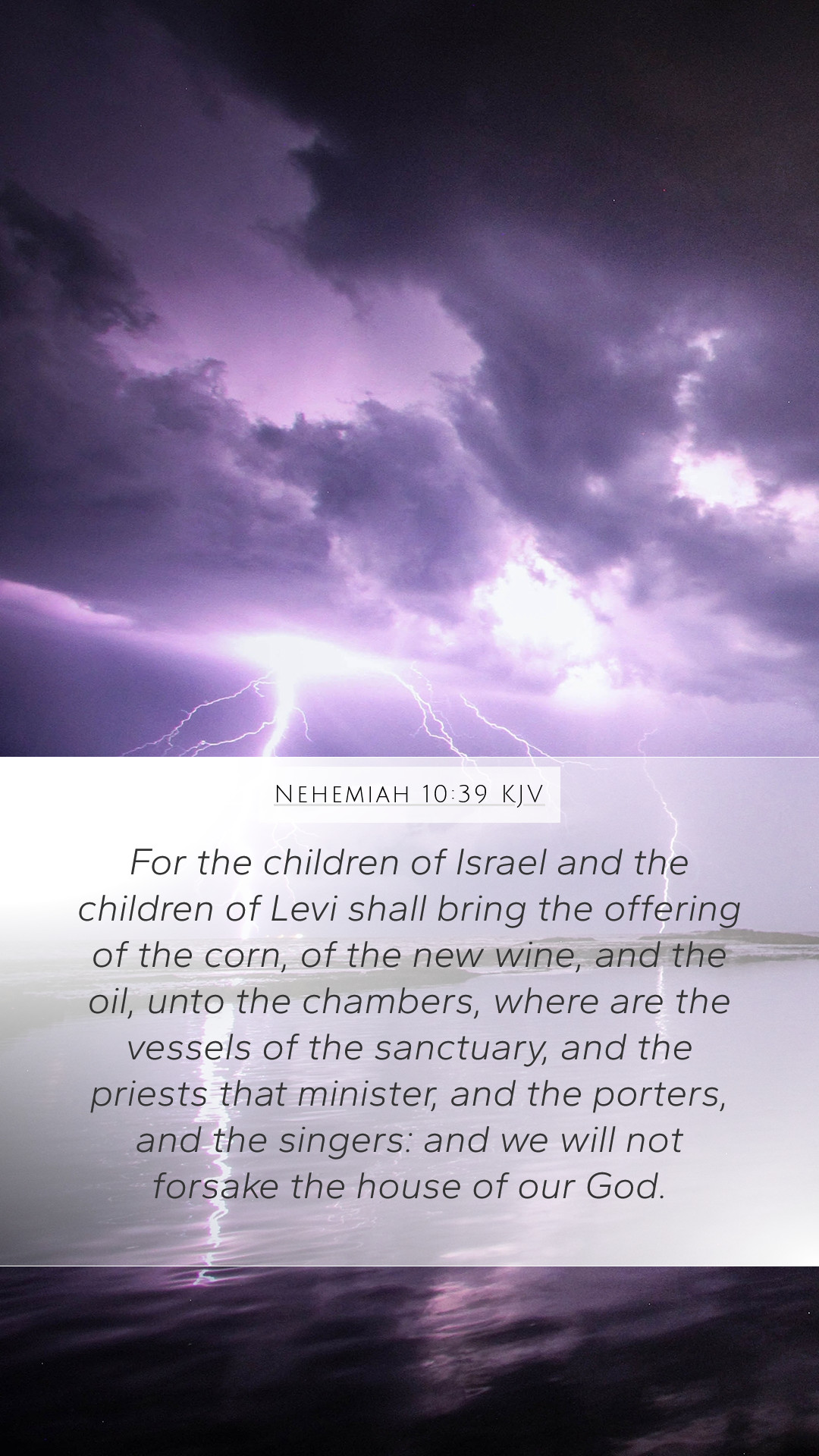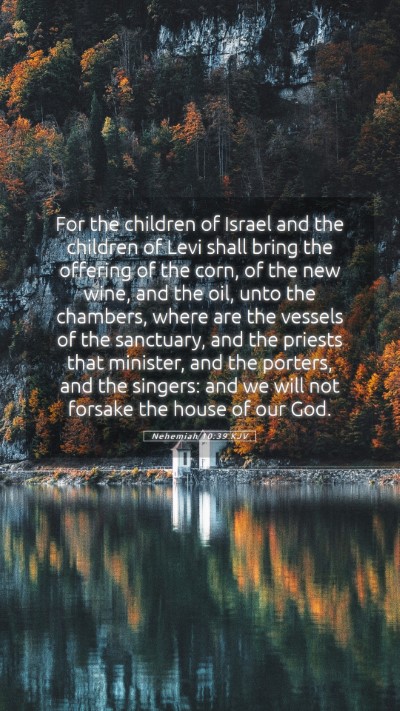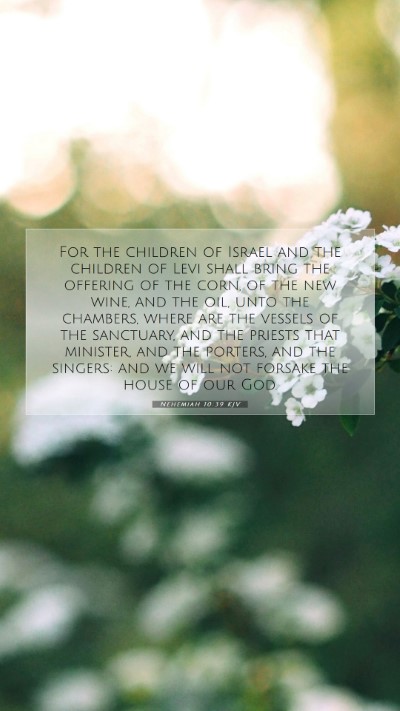Understanding Nehemiah 10:39
Nehemiah 10:39 states: "For the children of Israel and the children of Levi shall bring the offering of the corn, of the new wine, and the oil, unto the chambers, where are the vessels of the sanctuary, and the priests that minister, and the porters, and the singers: and we will not forsake the house of our God."
Context and Background
This verse comes from a significant moment in the history of Israel, where the people, having returned from Babylonian exile, recommit themselves to the worship of God and to the maintenance of the temple. The Israelites were acknowledging their responsibilities towards the temple. Through this pledge, they intended to ensure the continuity of worship and service in their sacred space.
Bible Verse Meaning and Interpretation
The combined insights from classic commentaries reveal profound meanings in Nehemiah 10:39:
- Matthew Henry: This commentary emphasizes the importance of the offerings brought by both the Israelites and the Levites. Henry notes that worship is a communal act, and everyone has a role in supporting the temple, which symbolizes God's presence among His people.
- Albert Barnes: Barnes focuses on the nature of the offerings, mentioning that they consist of essential agricultural products like corn, wine, and oil. Each of these offerings represents the sustenance and blessings that God provides, and it is an expression of gratitude as well as a commitment to divine service.
- Adam Clarke: Clarke highlights the collective action of the people in this commitment. He illustrates that this verse reflects not just a contract but a sacred covenant between God and His people, promising adherence to their religious duties and supporting the priests and Levites in their roles.
Key Themes
- Community and Responsibility: The pledge illustrates that worship involves both individual and collective responsibilities. Each member of the community has a role to play in supporting the temple service.
- Divine Provision: The offerings symbolize acknowledgment of God's provision, illustrating a reciprocal relationship between God and His people.
- Commitment to Worship: The verse shows a strong resolve among the Israelites to not forsake God’s house, emphasizing their desire for a consistent and sustained worship experience.
Application and Relevance
For modern readers, Nehemiah 10:39 encourages reflection on how we support our places of worship today. It elicits questions like:
- How can we contribute to the vitality of our churches or communities?
- What responsibilities do we take upon ourselves in fostering spiritual growth among our peers?
- In what ways can we express gratitude for the blessings we have received?
Historical Context
Nehemiah's reforms were essential for the restoration of Jewish worship and identity after the Babylonian exile. The context of the verse is fundamental in understanding how the Israelites were reestablishing their communal life under God’s guidance.
Cross References
- Exodus 23:19: “The best of the firstfruits of your ground you shall bring into the house of the Lord your God.”
- Malachi 3:10: “Bring the full tithe into the storehouse, that there may be food in my house.”
- 2 Chronicles 31:4: “And he commanded the people who lived in Jerusalem to give the portion due to the priests and the Levites, that they might give themselves to the law of the Lord.”
Conclusion
In summary, Nehemiah 10:39 serves as a powerful reminder of the importance of our commitments to worship, community, and God’s service. The verse provides essential bible verse meanings and lays a foundation for bible verse interpretations focused on community responsibilities and expressing gratitude. As we engage in bible study and seek a deeper understanding of Scripture, this verse encourages us to think about our roles in the community of faith today.


